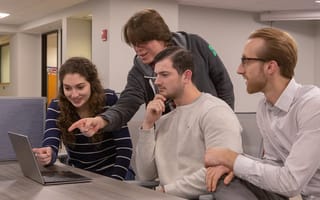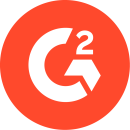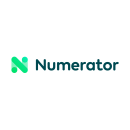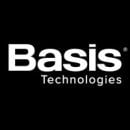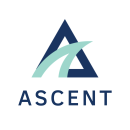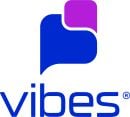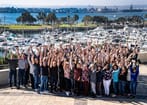Whether it’s getting everyone together in a room for two hours or breaking big projects into more manageable chunks, technology teams often come up with unique approaches to solving complex problems.
These strategies are often shaped by, and serve as a reflections of, a company’s culture and values. We recently spoke to technologists at nine companies about how culture shapes how they solve complex problems, and what makes their approaches to tackling tough problems unique.

G2 Crowd provides a place for consumers to leave reviews of business software and services, which gives companies extra insight into potential purchases. Development Team Lead Craig Landry and Software Engineer Emily Green said the company’s culture plays a big part in its approach to solving problems.
You could be writing a custom API hook on Monday and then be building out a custom landing page by Wednesday.”
What’s the most exciting project you’re working on, and how do the challenges you’re facing shape your team’s culture?
Landry: We’re working on a redesign of a high-profile page on our site. Most parts of our business have a large stake in how the page works, and multiple user personas need to be accounted for. New functionality and data will be integrated, and we’ll be running a series of A/B tests where there are a lot of different metrics involved. Projects like this reinforce the aspects of our culture around working on things that matter and backing up decisions with data. A fun side effect of this is that things stay interesting and that the team has a good connection to the people who use our site.
What makes your team’s approach to solving problems unique or different?
Green: When we are presented with a problem to solve, our culture allows us the freedom to figure out the best approach while always encouraging questions. This independence is shaped by the diversity of the problems we work on daily. The team encourages everyone to be involved with all areas of our application. You could be writing a custom API hook on Monday and then be building out a custom landing page by Wednesday, which enables us to be continuously learning and developing as engineers.

Numerator, which formed after the recent merger of InfoScout and Market Track, provides omnichannel marketing, merchandise and sales data to give brands a more complete view of the consumer shopping and purchase experience. Chicago Engineering Lead Scott Ferguson said the company’s Insights project is one of its most exciting, as its sheer size requires developing multiple solutions that make an impact across the company.
We have bi-weekly engineering lunches that often serve as an open forum for discussing solutions.”
What’s the most exciting project you’re working on, and how do the challenges you’re facing shape your team’s culture?
Our users upload around 600,000 paper receipts to our system every day, and we are tasked with figuring out what items are listed. Attributing this data is the biggest challenge our team regularly faces. Given the scale, this challenge doesn’t just lead to a single project but many different projects where we’re building tools that allow us to attribute line item data as quickly and accurately as possible. The end result is a culture of shared ownership where other parts of the organization rely on, or work out of, the tools we build. That sense of shared ownership means we collectively celebrate wins and that failing fast is both encouraged and respected.
What makes your team’s approach to solving problems unique or different?
Our team has a very “all hands in” approach to exploring solutions to problems. We have bi-weekly engineering lunches that often serve as an open forum for discussing solutions to issues that a particular engineer is trying to navigate. As a whole, the team is made up of very intelligent engineers with very little ego. Our quarterly hack days also serve as a method of ironing out challenging problems, with teams of engineers working together to prototype solutions.

Lumere’s platform helps hospitals cut costs and improve patient outcomes by providing in-depth, data-driven analysis of available drug and device options. Software developers Asma Mehjabeen, Andrew Spalding and John Morris shared their team’s unique approach to tackling tough challenges.
Everyone is passionate about what they are doing and fully aware of how their contributions add value.”
What’s the most exciting project you’re working on, and how do the challenges you’re facing shape your team’s culture?
Mehjabeen: Developing Lumere’s analytics capability, which presents our health systems with a spectrum of tailored strategies based on available evidence to help hospitals reduce variation, increase savings and provide improved care. One of the biggest challenges was building an automated tool that takes inputs from our category optimization team and provides custom strategies to the health system, each with varying data sets, care and spend patterns. This project required cross-company collaboration. We foster a culture of ownership that also encourages respectful debate and welcomes new ideas with zeal. Everyone is passionate about what they are doing and fully aware of how their contributions add value.
What makes your team’s approach to solving problems unique or different?
Spalding: We’ve meticulously kept our software up to date, and we’re constantly investing in improving our software stack. Since I’ve joined, we’ve revamped our test suite to be more reliable and robust. We’ve made major investments in upgrading to Python 3 and almost every new release of Django. We’re given time to improve our processes and take a step back when things aren’t working as intended.
Morris: Our team’s approach to problem-solving is to involve developers early in the product management process. Involving everyone early reduces requirements ambiguity, better identifies technical pitfalls and distributes domain knowledge across the team. Everyone has an equal voice in deciding the technical approach to solving a problem. By the time we estimate work for a sprint cycle, everyone is familiar with the implementation details and the complexity level. I prefer this to more ad-hoc approaches because it usually results in fewer code rewrites, fewer late-breaking change requests, and more consistency within the code base.

Centro’s cloud-based marketing software lets brands and digital agencies more easily purchase media space and automate time-consuming processes. VP of Engineering Mike Hoyle said striking the balance between autonomy and guidance has been a key component of his team’s problem-solving strategy.
Our most senior engineers and architects can’t make all of our decisions.”
What’s the most exciting project you’re working on, and how do the challenges you’re facing shape your team’s culture?
Late in 2017 we launched Basis, a software platform that creates a better way to buy digital media. Now we’ve set our sights on helping agencies find a better way to run an entire media business. This means leveraging massive stores of data to provide intelligent insights throughout all stages of the media buying experience. As we grow our team, all technical disciplines must work seamlessly together. Collaboration is, and must continue to be, a core part of our DNA.
What makes your team’s approach to solving problems unique or different?
We put constant thought and iteration toward our approach to problem-solving. We aim to find the perfect balance between autonomy and guidance. This is of prime importance as we scale our team to solve a larger breadth of difficult problems across an array of disciplines. Our most senior engineers and architects can’t make all of our decisions. This creates a huge opportunity for learning and career growth for anyone who walks through Centro’s door.

Future Finance provides loans to students in the United Kingdom that can be used to pay for everything from tuition to everyday expenses like rent and groceries. Principal Software Engineer Attila Domokos and Software Engineer Calvin Mwesigwa weighed in on what their team is working on, along with how the company’s core values play a big role in the way they approach problems.
we are willing to try things nobody has tried before, because everyone is open to new and unique approaches.”
What’s the most exciting project you’re working on, and how do the challenges you’re facing shape your team’s culture?
Domokos: We built an app for students in the United Kingdom to apply, and be accepted, for a loan within minutes. We did this with a geographically dispersed team with vastly different cultural backgrounds, and this mix of people has brought out the best ideas. The heterogeneous nature of our team makes us more open to new ideas, and we are willing to try things nobody has tried before, because everyone is open to new and unique approaches to problem-solving. For example: We are using a functional programming language that very few teams would use, which gives a competitive advantage.
What makes your team’s approach to solving problems unique or different?
Mwesigwa: We initially try to understand the core issue at hand. Depending on the complexity of the problem, we collaborate and quickly brainstorm solutions while stating the pros and cons of each suggested approach. This allows us to quickly narrow down and choose the best ideas, and ensures our eventual solutions are a product of the entire team. Our company’s core values include “best idea wins” and “no ego,” which encourages us to share the most creative, and even unconventional, ideas. The more great ideas you have, the more impact you can make on the company and in the lives of the students whose education we are working to support.
Ascent RegTech helps companies in highly regulated industries build and manage automated compliance programs. According to Data Engineer Katie Simmons, the tech team’s bedrock “best effort community” core value is key to creating an environment where engineers feel empowered to do their best work.
We can architect better, more robust and maintainable solutions because our leadership and more senior teammates have normalized asking questions.”
What’s the most exciting project you’re working on, and how do the challenges you’re facing shape your team’s culture?
I’m working on automating several processes around developing, productionizing and deploying machine learning models. The goal is for data scientists to spend the majority of their time creating, training and re-tuning models without having to think about infrastructure. Understanding the current processes and needs of our data scientists has been a collaborative effort between our data scientists, engineers, leaders and other stakeholders.
What makes your team’s approach to solving problems unique or different?
The Ascent tech team has a core value underlying all the others, and it is that we are a best effort community. If each person operates from the understanding that everyone else is doing the best they can with the information they have and that we are a community that collaborates to ensure we succeed as a team, this ensures an environment of psychological safety. We can architect better, more robust and maintainable solutions because our leadership and more senior teammates have normalized asking questions and because they value each person’s perspective.
Heretik’s software — built atop Relativity’s flagship e-discovery platform — uses machine learning to simplify and streamline the contract review process. Co-founder and Chief Architect David Barnes said that the sales team’s ability to manage customer expectations makes it easier for his team to tackle its biggest challenge: sorting large amounts of data.
A lot of teams I’ve been on before have not critically looked at their process and asked, ‘Is this really working?’”
What’s the most exciting project you’re working on, and how do the challenges you’re facing shape your team’s culture?
Sorting large amounts of data. People often don’t realize how dense contracts can be and all the intricacies that go into managing such complex documents. It’s very important for our sales team to be transparent with our clients about what our software can do and where we still need to improve. This has really shaped our culture by allowing members of the team to have real trust in each other and to know that we aren’t just checking boxes but are really trying to solve this problem.
What makes your team’s approach to solving problems unique or different?
We take one-foot runs instead of making one gigantic run up the ladder. We are constantly breaking features into smaller and smaller deliverables. This allows us to manage complexity in a way I have not been a part of before. After the puzzle is put together, we all sit down to really understand what worked, what didn’t and how to take action on the next large feature. A lot of teams I’ve been on before have not critically looked at their process and asked, “Is this really working, or how can I make it better?” This has really shaped our engineering success.

ParkWhiz helps drivers across the world find parking. Software Engineer Cory Jbara said that one of the company’s biggest engineering challenges is considering the needs of the platform in the future while trying to solve problems in the present.
We strive to write code that solves the problem at hand and provides the flexibility and scalability to solve a number of different problems.”
What’s the most exciting project you’re working on, and how do the challenges you’re facing shape your team’s culture?
We want our platform to be the back end that powers the parking experience for as many apps, websites and venues as possible. By treating our own apps as partners that consume our API, we are able to develop features that can be used on our platforms and by any of our partners. We strive to write code that solves the problem at hand and provides the flexibility and scalability to solve a number of different problems. It’s important to anticipate the future needs of the platform and organization and address those concerns as we develop. This challenge has helped each of us grow tremendously.
What makes your team’s approach to solving problems unique or different?
We only hire the best and most passionate, which makes for an incredibly stimulating work environment. Our goals are lofty, but time and time again we exceed our own expectations. We often discuss different solutions as a team, drawing up potential architectures and designs with the trust and understanding that whoever implements the solution will do an incredible job. With this culture of trust comes a lot of autonomy and ownership. Your ideas will be heard at ParkWhiz, because every member of the team has the skills, passion and intuition to bring great value to the platform and company.

Vibes is a mobile marketing company that helps brands reach consumers via push notifications, SMS, messaging apps, and more. Data Warehouse and Business Intelligence Engineer Trevor Beuthel said that when it comes to solving challenging problems or figuring out how to best leverage new tech, the data and analytics team sometimes prefers to take an old-school approach.
One thing I really appreciate about Vibes is the priority we place on innovation and encouraging engineers to step up.”
What’s the most exciting project you’re working on, and how do the challenges you’re facing shape your team’s culture?
Our near real-time natural language processing technology, which we’ll be releasing later this year. We have a small and lean team, so we’ve all had to rely on each other’s expertise in different areas throughout this project. We’ve been able to do spikes around uncertain areas, which has helped us fail fast and move on. This process has also allowed us to build and release very quickly and has served to build trust and competency among team members. On a broader scale, this process contributes to a culture where we are always learning and depending on teamwork to find the best solutions.
What makes your team’s approach to solving problems unique or different?
I have been in software development for over 10 years and have worked on a number of different teams with varying approaches. One thing I really appreciate about Vibes is the priority we place on innovation and encouraging engineers to step up to help solve big problems. The data and analytics team has lab time, which is dedicated to problem solving. If there’s a new technology or a particularly challenging problem, we’ll get the relevant people in the same room for an hour or two to approach different solutions. This has helped immensely. The labs have an added benefit of fostering community because they bring people together to work on common problems, which produces more diversity of thought and helps us build stronger relationships.

